Reliable Garment Printing for London, UK & Europe
Tee Print London is here for all your garment printing needs.. Known for our reliable service and commitment to quality, we specialize in customizing everything from hoodies and T-shirts to tote bags, caps, workwear, sportswear and even masks. With same-day delivery available and 24/7 support, we work hard to meet your expectations with every order. Reach out to Tee Print London for garment printing you can count on.
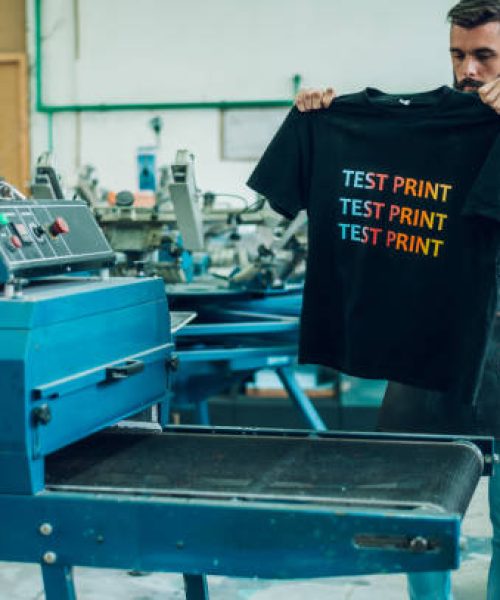

CUSTOM GARMENT PRINTER YOU CAN FINALLY RELY ON


We are Open 24/7 Including Bank Holidays


Garments Printed In London by Own Production House


Fastest Turnaround, Same Day Delivery & Free Collection


High-Quality Print & Fabric that look great and last long


Our Easy Refund Policy Gives You Peace of Mind
What they say about us
EXCELLENTTrustindex verifies that the original source of the review is Google. I was recommended Tee Print London by a friend, and I'm so glad I listened! All goodPosted onTrustindex verifies that the original source of the review is Google. Rapid service + great quality at a good price.Posted onTrustindex verifies that the original source of the review is Google. Having been let down by another printer i needed same day printing of a Tshirt. It was done to a high quality, with excellent communication throughout. Highly recommend.Posted onTrustindex verifies that the original source of the review is Google. Same day delivery and communication was great !! Would definitely recommendPosted onTrustindex verifies that the original source of the review is Google. Had to print t-shirts for my business. High quality prints for a good price. Excellent person to work with.Posted onTrustindex verifies that the original source of the review is Google. Speedy service and would come again!Posted onTrustindex verifies that the original source of the review is Google. Excellent quality print, great quality shirts, accommodating services when you need it mostPosted onTrustindex verifies that the original source of the review is Google. I put in a very late order for kit and the team at Tee Print delivered great quality printed shirts within two days for a very reasonable price. I would strongly recommend them to anybody wanting custom shirts (though they might prefer to have a little longer to prepare them!).
Your ideal garment awaits in our collection of 3,500+ styles
-

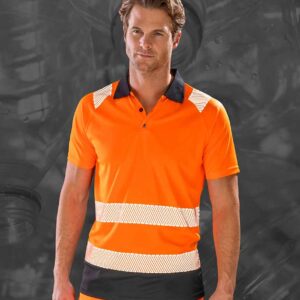
Result Genuine Recycled Safety Polo Shirt
£17.86 Select options This product has multiple variants. The options may be chosen on the product page -

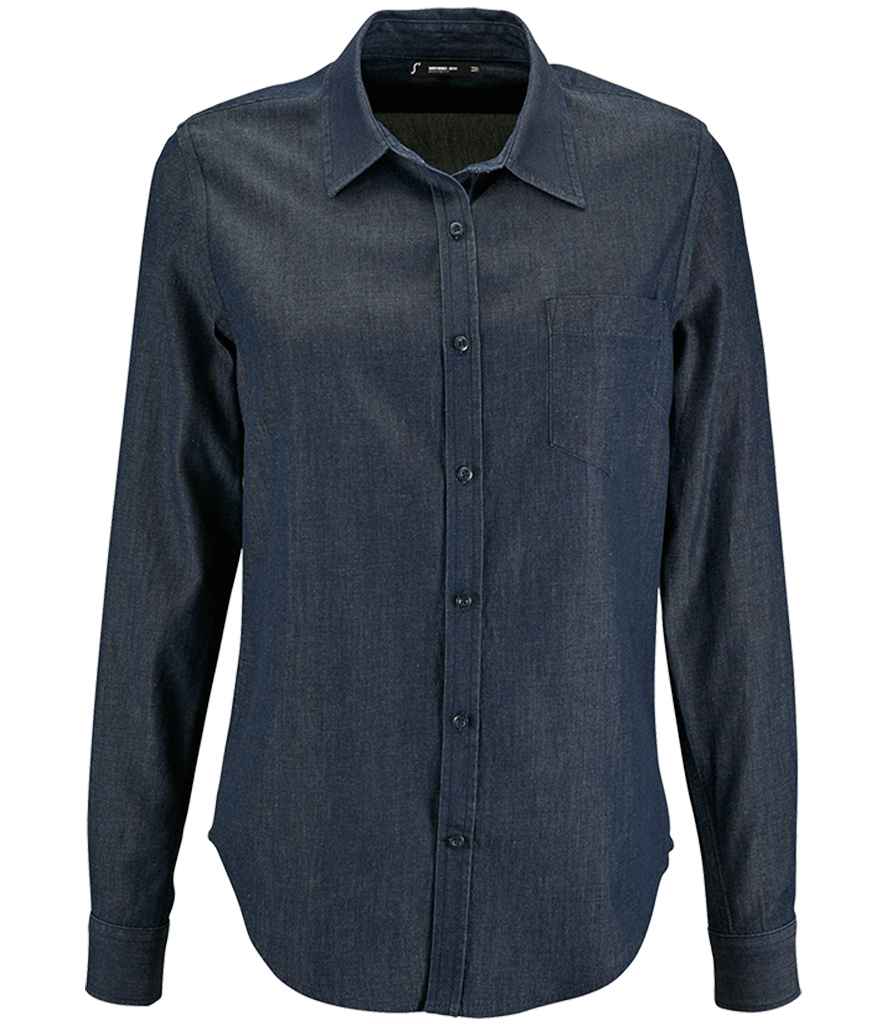
SOL’S Ladies Barry Long Sleeve Denim Shirt
£33.62 Select options This product has multiple variants. The options may be chosen on the product page -

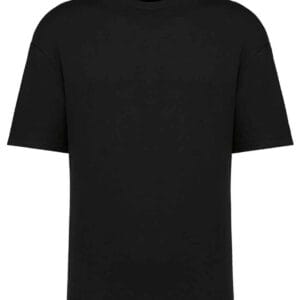
Native Spirit Unisex French Terry T-Shirt
£20.24 Select options This product has multiple variants. The options may be chosen on the product page -


Stormtech Madison Commuter Backpack
£119.59 Select options This product has multiple variants. The options may be chosen on the product page -

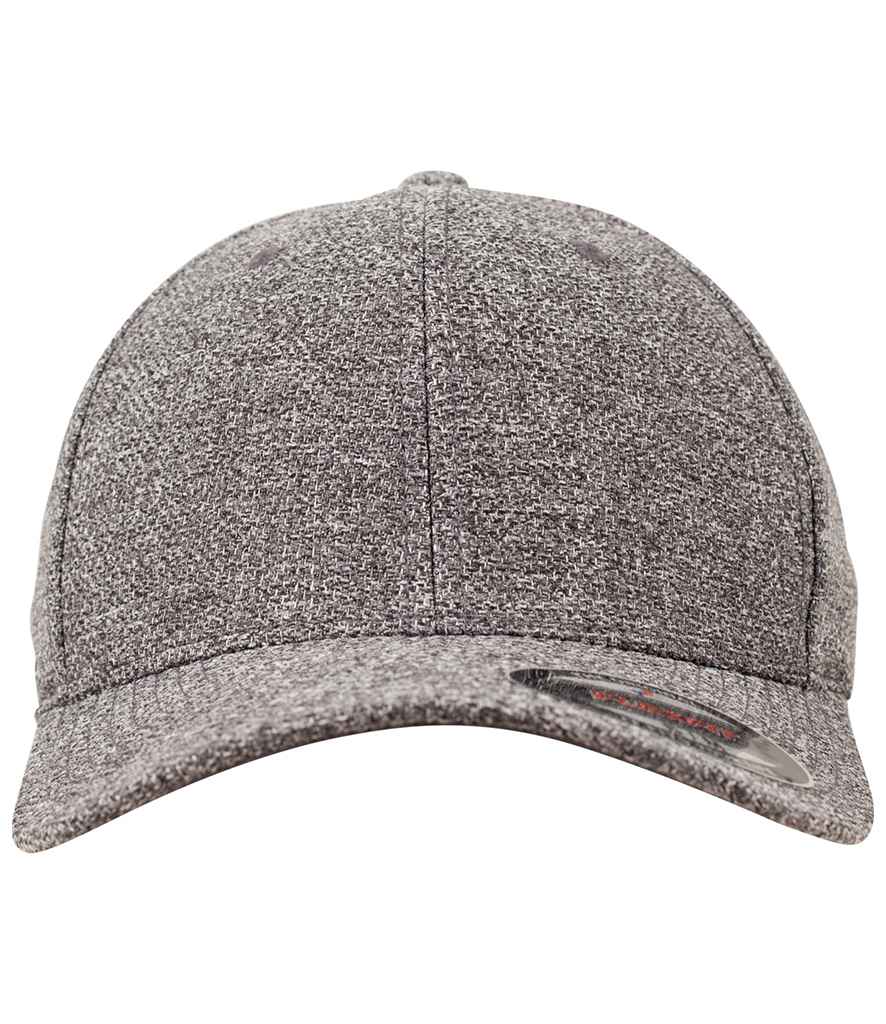
Flexfit Melange Cap
£17.34 Select options This product has multiple variants. The options may be chosen on the product page -

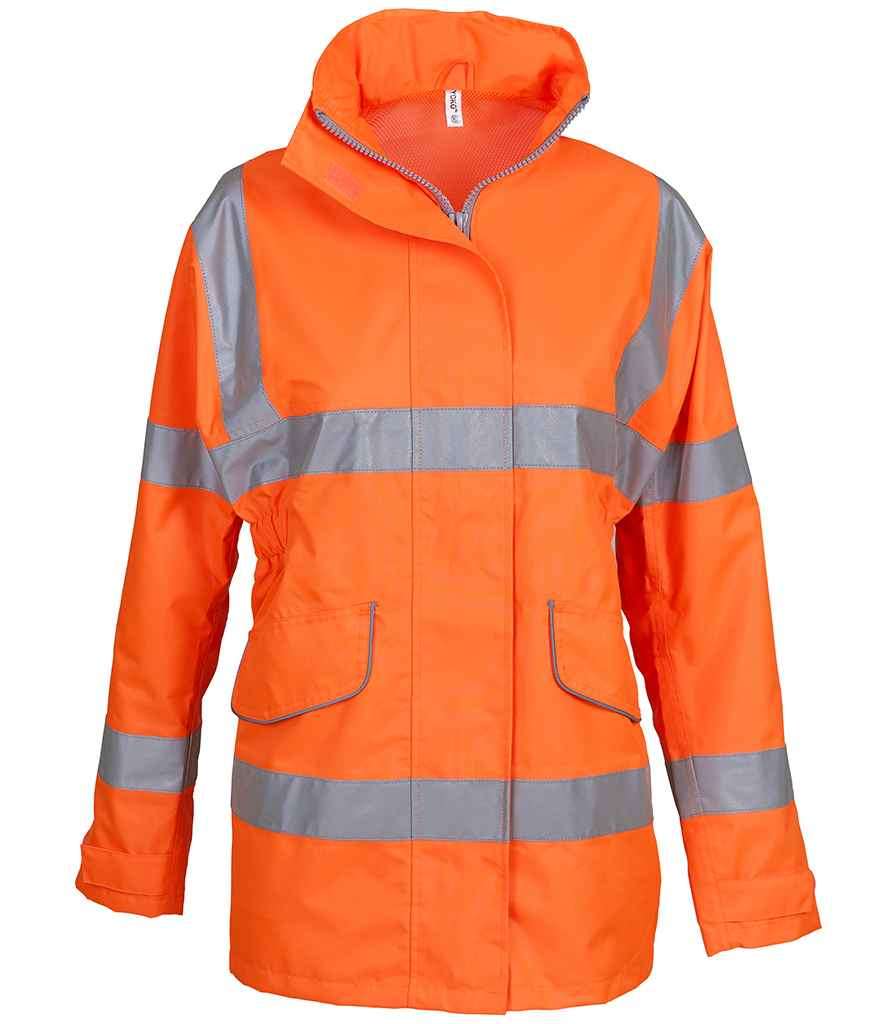
Yoko Ladies Hi-Vis Executive Jacket
£47.78 Select options This product has multiple variants. The options may be chosen on the product page -


Beechfield Classic Waffle Knit Beanie
£6.06 Select options This product has multiple variants. The options may be chosen on the product page -

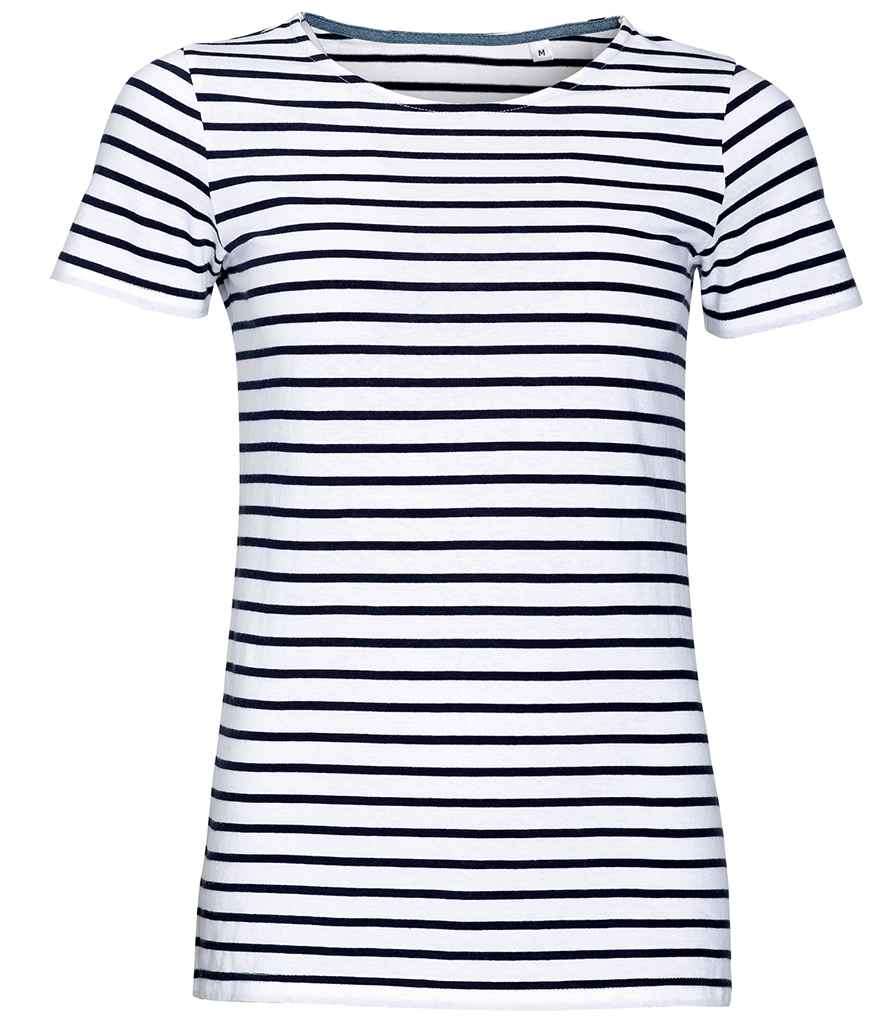
SOL’S Ladies Miles Striped T-Shirt
£11.14 – £12.25Price range: £11.14 through £12.25 Select options This product has multiple variants. The options may be chosen on the product page
How Garment Printing Works
Garment printing, also known as textile printing, is a process used to apply color to fabric in definite patterns or designs. In properly printed fabrics, the color is bonded with the fiber to resist washing and friction. The process involves several key steps:
Design Creation and Selection:
The first step in garment printing is designing the pattern or image to be printed. This can be done using software like Adobe Photoshop or Illustrator. The design is then selected for printing, considering factors like the fabric type and the desired effect.
Preparing the Fabric
Before printing, the fabric is usually pre-treated to ensure better ink absorption and color fastness. This process may involve washing, drying, and stretching the fabric to eliminate any wrinkles or shrinkage.
Printing Techniques
There are various methods for applying designs to fabric, each with its own set of advantages:
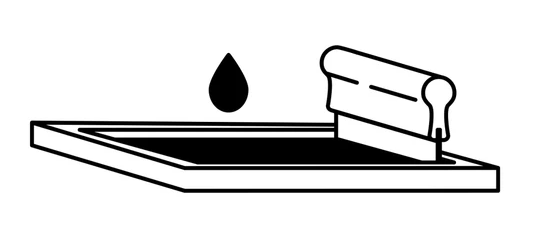

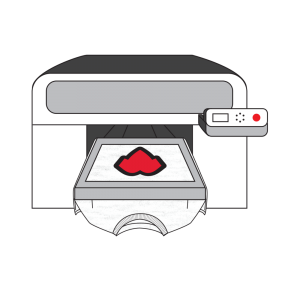

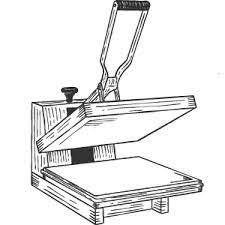



- Screen Printing:
This is a popular method for high-volume orders. It involves creating a stencil (or screen) of the design, then using it to apply layers of ink on the surface of the fabric. Each color is applied using a different screen, one at a time, combined to achieve the final design. - Digital Printing:
Also known as direct-to-garment (DTG) printing, this method uses a specialized printer to apply the ink directly onto the fabric. Digital printing is ideal for detailed designs and small orders, as it allows for more color variety and intricate patterns. - Heat Transfer:
In this method, a design is printed onto heat transfer paper and then transferred onto the fabric using heat and pressure. It’s useful for full-color images and is commonly used for t-shirts. - Dye Sublimation:
Best for polyester and polymer-coated substrates, this method involves turning a solid dye into a gas using heat and pressure, which then bonds with the fabric, resulting in a high-quality print.
Post-Printing Processes
After printing, the fabric often undergoes processes like steaming, washing, and drying to set the ink and remove any excess. This ensures the print’s longevity and color fastness.
Quality Check and Finishing
The final step involves a thorough inspection of the printed fabric for any defects or inconsistencies. The fabric may also be cut or sewn into final products, like garments or accessories.
The choice of printing method depends on various factors like the type of fabric, the complexity of the design, the desired effect, and the size of the order. Advancements in technology, especially in digital printing, have greatly expanded the possibilities for fabric design and customization in the garment industry.
Why Choose Tee Print London for Your Garment Printing Needs
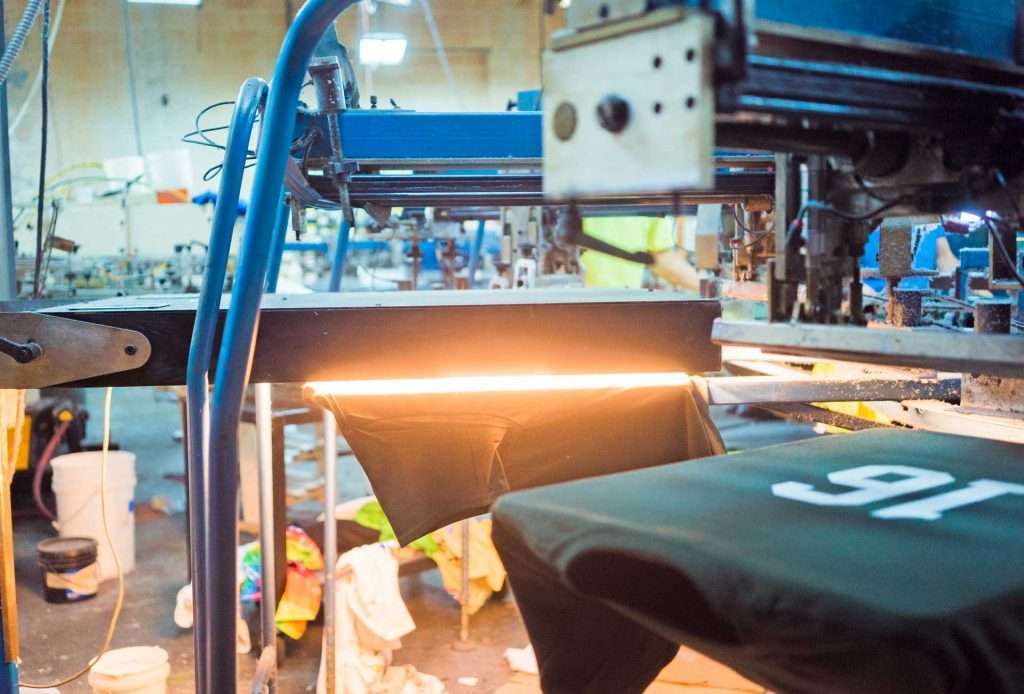

At Tee Print London, we stand out as a reliable garment printer based in London, offering a blend of expertise in customization, state-of-the-art technology, and a commitment to quality assurance. Our eco-friendly practices, combined with fast turnaround times and competitive pricing, make us an ideal choice. We pride ourselves on exceptional customer service and being a local London business, which allows us to understand and cater to the unique needs of our clients. Our versatility in handling a wide range of products, from t-shirts to corporate wear, and our proven track record in delivering top-notch services, ensure that we meet and exceed your garment printing expectations. Choose Tee Print London for a seamless and high-quality printing experience.
Frequently Asked Questions about our Garment Printing London
Screen printing is generally considered to have higher quality and durability compared to other garment printing methods.
Direct-to-garment (DTG) printing can be long-lasting with proper care and high-quality printing processes.
The typical steps in garment printing include pre-treatment (for DTG), design preparation, screen preparation (for screen printing), ink application, curing or heat-setting, and quality control.
Various materials are used for printing on clothes, such as cotton, polyester, blends, and specialty fabrics like spandex or nylon.
The best printing process depends on factors such as the type of garment, design complexity, order quantity, and budget. Screen printing is excellent for large orders with fewer colours, while DTG is more suitable for smaller quantities and intricate designs. Heat transfer, sublimation, and embroidery are also popular choices for specific applications.
There are several types of garment prints, including screen printing, direct-to-garment (DTG) printing, heat transfer printing, sublimation printing, vinyl printing, embroidery, and more.
The garment industry utilises various printing methods, including screen printing, DTG printing, heat transfer printing, and sublimation printing. Each method offers unique advantages and is chosen based on the specific requirements of the project.
Digital printing, especially DTG printing, has been one of the latest advancements in fabric printing. However, the textile industry continually evolves, and there may be newer methods beyond my knowledge cutoff.
There is no specific limit to print sizes, as they can vary based on the printing method, garment dimensions, and design specifications. Print sizes can range from small chest prints to large full-front or full-back designs.
T-shirts made of cotton or cotton-blend fabrics are commonly used for printing, as they offer a smooth and printable surface. However, other types of shirts, such as polyester performance shirts or tri-blends, can also be suitable for different printing methods.
Digital printing in the garment industry refers to the process of using computer-controlled printers to apply designs directly onto garments without the need for screens or plates. DTG printing is one of the popular digital printing methods used for garments.
Both DTG and screen printing can produce high-quality results. DTG printing is excellent for detailed designs with multiple colours and gradients, while screen printing is preferred for solid colours and larger orders. The choice between the two depends on the specific project requirements and design characteristics.


























